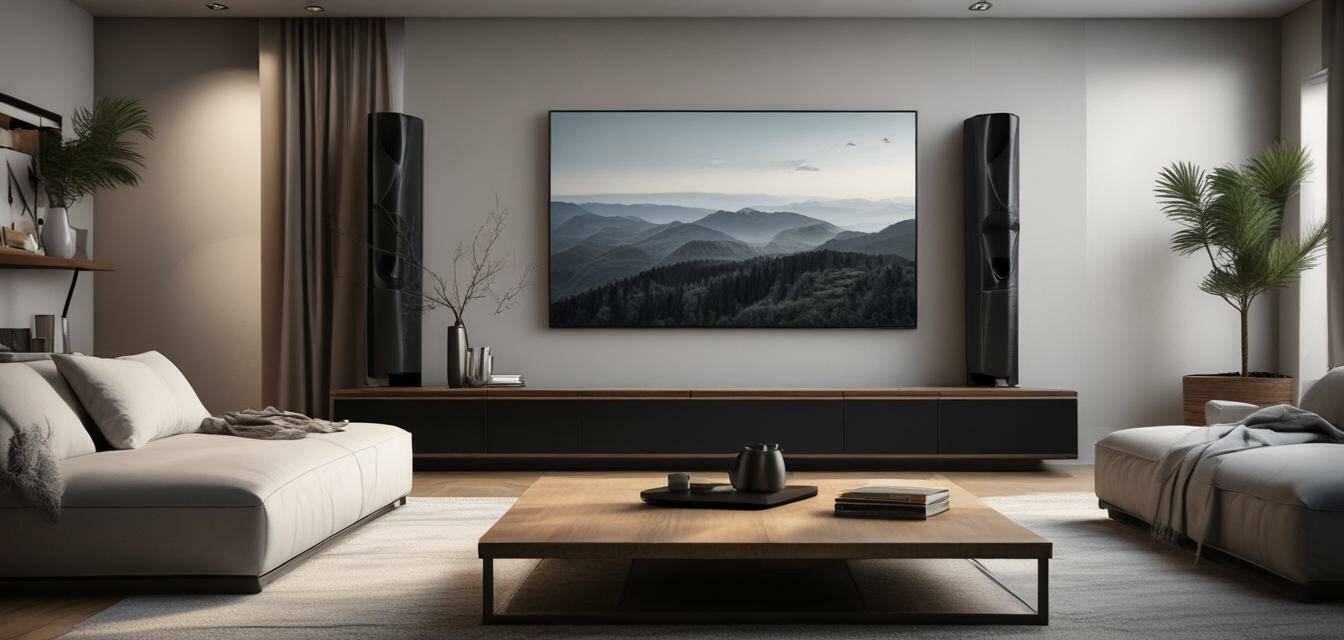
How to Optimize Soundbar Settings for Your Room
Key Takeaways
- Room acoustics significantly impact audio quality.
- Adjusting soundbar settings can enhance sound experience.
- Placement of the soundbar matters for optimal sound delivery.
- Use room size and furniture arrangement to your advantage.
Having a soundbar that flatters your audio experience is essential, but understanding how to optimize its settings for your specific room can elevate it to the next level. This guide serves to help you adjust your soundbar settings based on your room's acoustics so that you can enjoy a rich, immersive audio experience.
Understanding Room Acoustics
Before diving into adjusting settings, it is vital to acknowledge how acoustics work in your space. Room acoustics refer to how sound waves interact in your environment. Factors such as size, shape, and furniture can influence sound quality.
Key factors affecting acoustics
- Room Size: Smaller rooms can create reflections, while larger rooms may cause sound to dissipate.
- Shape: Square rooms may create echo, whereas rectangular rooms can have more balanced sound.
- Furniture: Soft furnishings like curtains and carpets absorb sound, while hard surfaces can reflect sound.
Adjusting Your Soundbar Settings
Next, let's look at how to adjust settings to match your acoustics and room characteristics. Here are some key settings and adjustments to explore:
Essential soundbar settings
| Setting | Adjustment | Purpose |
|---|---|---|
| Equalizer | Balance the bass, midrange, and treble frequencies | Enhances audio clarity based on room dynamics |
| Surround Sound | Enable or disable depending on room layout | Increases immersion or simplifies soundstage |
| Volume Leveling | Adjust for consistent sound between different media | Reduces volume fluctuations |
| Subwoofer Level | Increase or decrease levels based on preferred bass | Customizes low-frequency output |
Soundbar Placement Tips
One of the most critical aspects of optimizing soundbar performance is its placement within the room. Here are some placement tips to achieve an optimal sound experience:
Recommended placement
- Place the soundbar at ear level for the best sound projection.
- Avoid placing it inside furniture or cabinets to prevent sound obstruction.
- Ensure the soundbar is aimed towards the listening area for direct sound delivery.
- Keep it away from walls to minimize unwanted reflections.
Furniture Arrangement and Acoustics
The arrangement of your furniture can help create an optimized listening environment:
Furniture impact
| Arrangement | Impact on Acoustics |
|---|---|
| Soft furnishings (couches, curtains) | Absorb sound, reducing echo |
| Hard surfaces (walls, hardwood floors) | Can reflect sound, creating reverberations |
| Sparse layout | Can lead to loss of sound detail |
Common Troubleshooting Tips
If you've optimized your settings and placement but still face sound issues, consider these tips:
Troubleshooting tips
- Check all connections to ensure they are secure.
- Test sound with different media types—music vs. movies—to spot inconsistencies.
- Revisit your sound settings after moving the soundbar to ensure the changes accommodate the new layout.
Tips for Beginners
- Start with simple adjustments and progressively fine-tune settings.
- Use a sound testing app with various audio samples for precise adjustments.
- Keep notes on settings changes to track what modifications work best.
Conclusion
Optimizing your soundbar settings is an ongoing process. As you become more familiar with your room's acoustics and your soundbar’s capabilities, you'll be able to enjoy a richer audio experience. Whether you’re watching movies, playing games, or simply listening to music, ideal settings can make all the difference. For further understanding of soundbars, check out our Buying Guides.
Pros
- Enhances overall audio experience with tailored settings.
- Improves clarity and spatial awareness in sound.
- Cost-effective solutions compared to sound systems.
Cons
- Requires initial setup and tweaking to achieve optimal results.
- Placement may be limited by room layout.
- Not all soundbars are equipped with advanced settings.